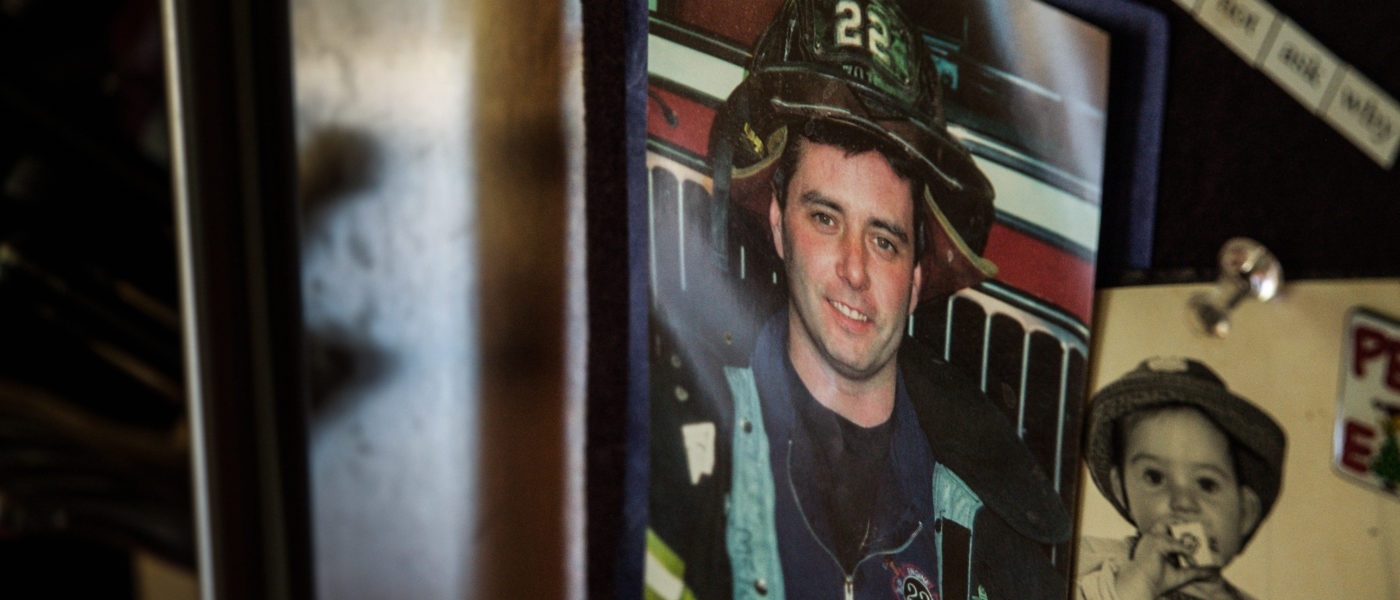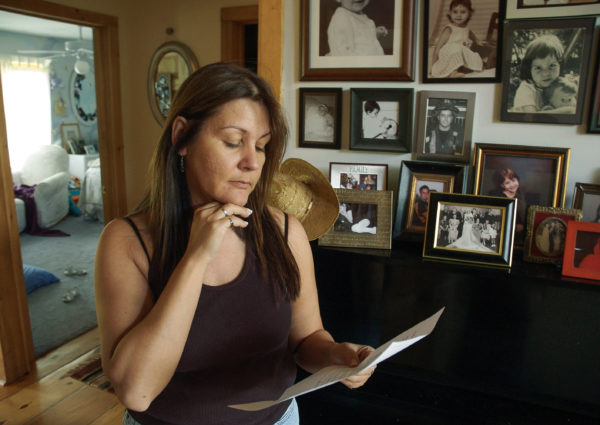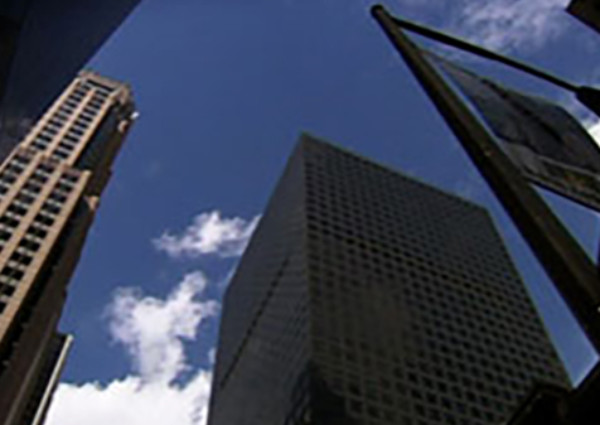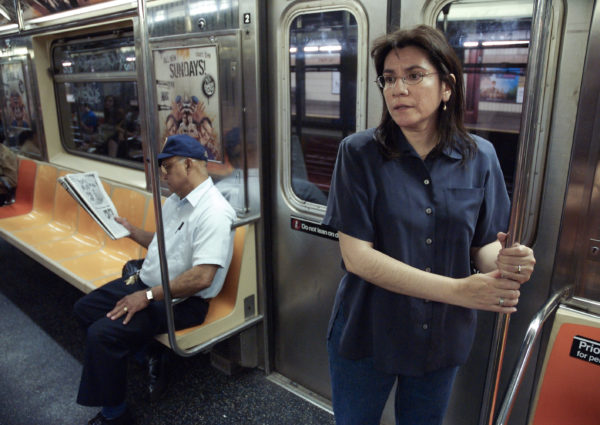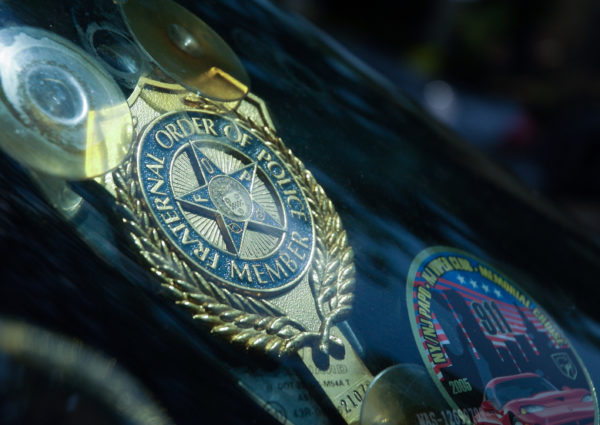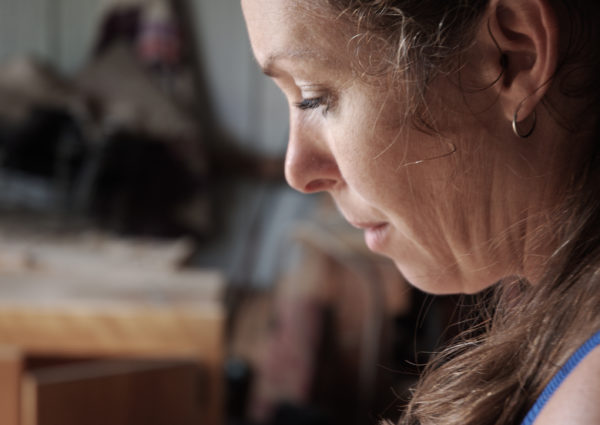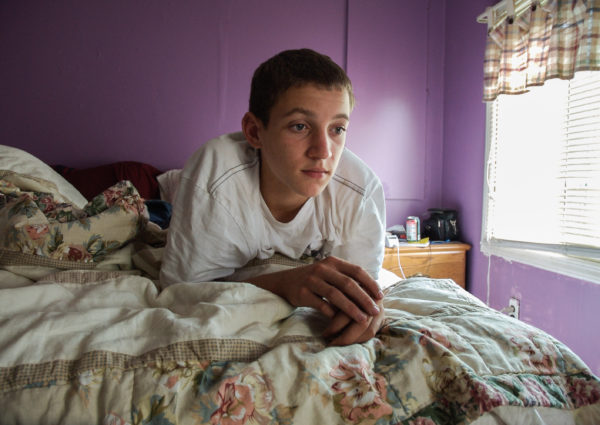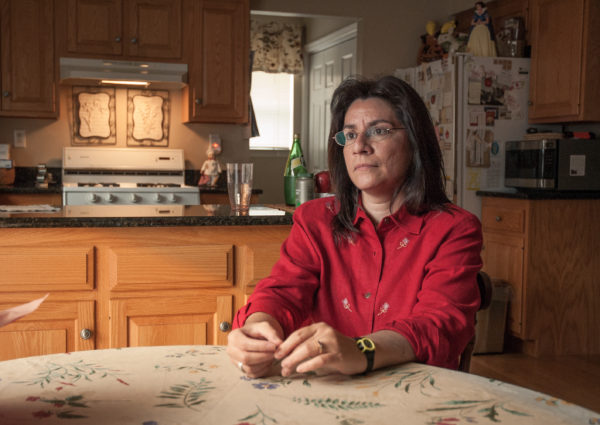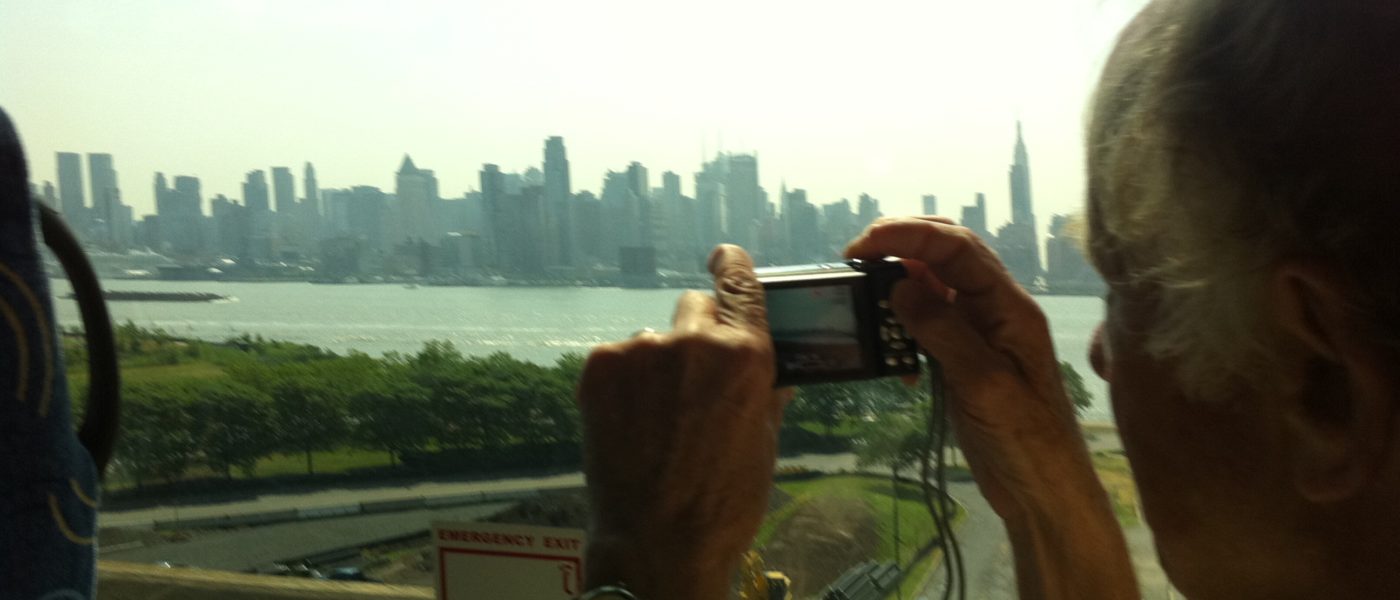9/11: Millionaire Widows
Channel 4
“A moving and highly emotional look at what happened to those whose
partners died on 11 September.” – The Observer
Reviews
Ignore the dreadful title, this is a moving and highly emotional look at what happened to those whose partners died on 11 September, 2001. At times the number of sad stories is almost too much, but it paints a picture of what happens to those left behind – both those who accepted the millions of pounds in compensation and those who rejected it as ‘blood money’. A sombre, well-paced, at times, unbearable tale.
It’s a good rule of thumb that when people say “It’s not about the money” then it’s about the money. Rather like “I’m not racist but…”, it is one of those denials that contradicts itself in the very utterance. Which isn’t to say that everyone who uses the phrase condemns themselves out of their own mouths as grasping and avaricious, only that they are mired in a place where finer instincts have encountered the tarry contamination of financial calculation. A very sympathetic woman called Margaret used it in 9/11 Millionaire Widows, when explaining why she’d taken her former partner’s brother to court to get her share of a 9/11 compensation payment, and there was no question that she burned with a sincere outrage at his behaviour. But if the money hadn’t been an issue, he probably wouldn’t have behaved badly in the first place.
Channel 4’s documentary told a story that began in sentimental impulse: the huge sums donated by the American public in the days immediately after the New York attacks and a reactive spasm from Congress, which decreed that survivors of 9/11 victims should receive compensation for their losses. It was an archetypally American story, too, not just because of that first wave of patriotic generosity, but because litigation was threaded through every detail. Those who agreed to compensation payments had to sign an agreement saying they wouldn’t sue the airlines. Those who didn’t found themselves battling in court, often with other relatives.
Families ended up split by disagreements that may well have existed but were amplified by accusations of greed and rapacity. The public need to give to those bereaved on 9/11 came with a catch. They wanted those left behind to have plenty of money, but not to enjoy it, or even to spend it too conspicuously. When one widow bought a sports car, the neighbours began to mutter and stare. And when the wives of dead firefighters fell in love with the firemen assigned to help them through their bereavement, they were even more censorious. That wasn’t what the widows were for: it was their job (a very well-paid job, the unstated assumption must have run) to provide an image of America’s righteous and enduring pain, a concept that didn’t sit entirely comfortably with an open-topped Dodge Viper. “It was my husband’s dream, it was not my dream,” said Eileen, in a brave attempt to spin her new wheels as an act of pious remembrance.
Andy Wells’s film was mildly censorious about the tabloid monstering of some of the survivors, while also taking care not to deprive you of the tabloid pleasures of gossip: the embittered wife dumped for a suddenly rich widow, the bereaved woman who blew $5m in just a few years and earned herself a place on Oprah’s sofa as a two-time victim, first of Mohammed Atta and then of charity-induced shopaholicism. It was also instructive about the way that the beneficiaries of public largesse may find that invisible conditions have been attached to what they receive, a good-behaviour clause that they only learn about when it is too late.
This programme may prove to be the most unexpected twist in Channel 4’s season of documentaries marking the fifth anniversary of the attack on the twin towers. Billions of dollars in compensation were given to the relatives of victims of the attack, it seems, and some grieving widows became multimillionaires overnight.
Apparently the strains of bereavement, followed by the equivalent of a lottery win and pressure from families, have been particularly destructive for some. Others have been attacked for flaunting their new wealth. Payments were made only on condition that relatives waived the right to sue for compensation, and in a strange compounding of misery, others are plagued by the feeling that they allowed themselves to be bought off.
After 9/11, the US government handed out billions of dollars in compensation to those widowed by the attacks. But to get the money, the women had to waive their right to sue for negligence, leaving many with a moral dilemma. Four women who accepted the cash tell how it has brought them little solace and more suffering, causing family rifts, estrangement from friends and public disapproval.
Shame of the 9/11 millionaire widows
Families have been torn apart by the massive compensation paid out after the attacks on the Twin Towers Mary Koenig calls it “9/11’s dirty little secret”. The wife of a New York fireman, Mary thought she was one of the lucky ones. Her husband Gerry came through the terrible attack on the Twin Towers unscathed.
Unlike so many friends who were married to fire-fighters, Mary got her husband back. Yet within weeks she had to face the fact that she had lost her husband to a 9/11 widow. Madeline Bergin’s husband John was Gerry’s best friend and their wives were close. The men served at the same fire station. They even resembled each other, both big and burly with florid, outdoorsy faces. It was natural that Gerry should be assigned to help John’s widow. Mary now knows the affair between her husband and friend began three weeks after 9/11.
“By October, he was already lying about her and saying he was in one place when he was in another, ” she says. “I don’t know exactly when it started but three weeks after 9/11 the signs were there, so I’m going to assume it happened almost immediately. And so, apparently, one thing led to another and they were drunk one night and had sex on the kitchen floor.” Eight fire-fighters are known to have left their wives for 9/11 widows, a source of huge shame to the proud fire department dubbed New York’s Bravest. It is easy to see how a deep affection might develop between a widow and her husband’s best friend ‚Äì they are, after all, mourning the same man, but what turned public opinion against the fire-fighters and widows was the money connection.
Like many of the women married to fire-fighters and other rescue workers, Madeline Bergin became very rich after 9/11 thanks to the Victims Compensation Fund set up by the US Congress 11 days after the attack on the World Trade Centre. It was administered by Kenneth Feinberg who had the grand title of special master and acted as judge and jury in every compensation claim. In three years, the fund paid out 7billion in compensation, ranging from 250,000 to 5million. Another 2 billion was raised from public donations.
A million-dollar payout was quickly given to Madeline and she subsequently received another 4million. This convinces Mary Koenig that her ex-husband was seduced as much by Madeline’s wealth as anything else. “She didn’t know what to do with the money. In a sense, she paid to have him be there for her, whether she admits it or not. She bought him.” Mary is stuck living in a ramshackle trailer in upstate New York. She and Gerry had finally fulfilled his dream of owning land in the country and were due to move from Staten Island on September 12. Mary left the city at the end of September but Gerry never made it. The log cabin they dreamed of is unlikely to be built now.
For those who lost loved ones on September 11, 2001, it must have seemed that life could not possibly get any worse. They had lost husbands, wives, sons and daughters, siblings and close friends in the most horrific circumstances. Surely fate had nothing more dreadful to throw at them? For some, however, the five years since 9/11 have brought only an intensification of grief, leaving more families broken and more lives wrecked by the very thing that was supposed to make it easier to go on.
The sudden appearance of a substantial amount of money drove a wedge between loving family members and often isolated the recipients from what they needed most ‚Äì the support of good friends. Kathy Trant’s husband Dan was a trader with Cantor Fitzgerald. After his death, Kathy was awarded almost 5million in compensation. Within four years, she had almost gone through the lot, spending fortunes on designer clothes and shoes (much of which she never wore), lavish trips to Las Vegas and the Caribbean for her friends and plastic surgery. She extended her house, trebling its size, and installed seven flat-screen TVs, chandeliers and a pool. By last year, only 500,000 was left and Kathy realised she was in the grip of an addiction that was a by-product of her grief. “Inside I’m dying, ” she says, “so I go out and I shop because that’s the only thing that makes me feel good.”
Journalist James Langton, who befriended Kathy after interviewing her, describes her as “one of the loneliest people I’ve ever met. In the middle of the night when she wakes up surrounded by all these possessions, she just has this emptiness because that’s not really what she wants. What she wants is her husband back.” Women who were not married to their partners found that not only was their status not immediately recognised but also their partners’ relatives tried to prevent them receiving their due.
Lisa Goldberg, a paramedic, lived with fireman Martin McWilliams and they had a daughter, Sara, now five. She was a few months old when Martin was killed while helping to evacuate survivors from the North Tower. He left no will and Lisa soon discovered that she had no legal status because she was not a spouse. At first, she and Martin’s family were united in their grief but that changed when she applied to the compensation fund on Sara’s behalf. Martin’s mother filed an objection, claiming Martin had not been in a relationship with Lisa and “it was not his intention to name her as a beneficiary”, and therefore she, as Sara’s grandmother, should be the child’s representative.
In 2004, Sara was awarded 2million in compensation and her father’s pension but her mother cannot touch it unless she applies to the courts every month and collects receipts for everything spent. “If you ever need anything, you have to ask permission, ” she says. “So I don’t touch these monies because I don’t have time to run around collecting receipts. My child is not a business.” Lisa has had no contact with the McWilliams family since Sara’s first birthday. What hurts even more, however, is that her place in Martin’s life has been ignored. “My existence with this man has been deleted. It has not been acknowledged and that’s the hardest thing that I have to live with, besides him really being gone.” The condition for receiving any money from the Victims Compensation Fund was that they waived the right to sue the World Trade Center or the airlines whose planes crashed into the towers.
Eight families never put in a claim but 65 families decided they would rather go to court. Among them was Eileen Cirri, the widow of police lieutenant Robert Cirri, who was also a part-time paramedic. Eileen fully expected to see her husband at the end of that terrible day because he had called her at 9.24am, after both towers had been hit. But he died when the North Tower collapsed as he was rescuing a woman in a wheelchair.
Eileen and Robert’s three children from a previous relationship were offered 1.5million compensation but Eileen rejected it as “blood money”. She believes that the fund’s main aim was to deter people from litigation by making it financially worth their while not to sue. However, her stepchildren challenged her through the courts and won. Eileen was forced to share a 3million award with them. “My rights were taken away, ” she says.
She spent part of the money on a two-seater sports car because it was Robert’s dream to own one, but she has now lost all contact with her stepchildren. Kenneth Feinberg says: “I think a lawsuit keeps an open wound. The bleeding continues.” His advice to families was to file their claims, take their money and to move on as best they could with their lives. “And most of them did that.”

